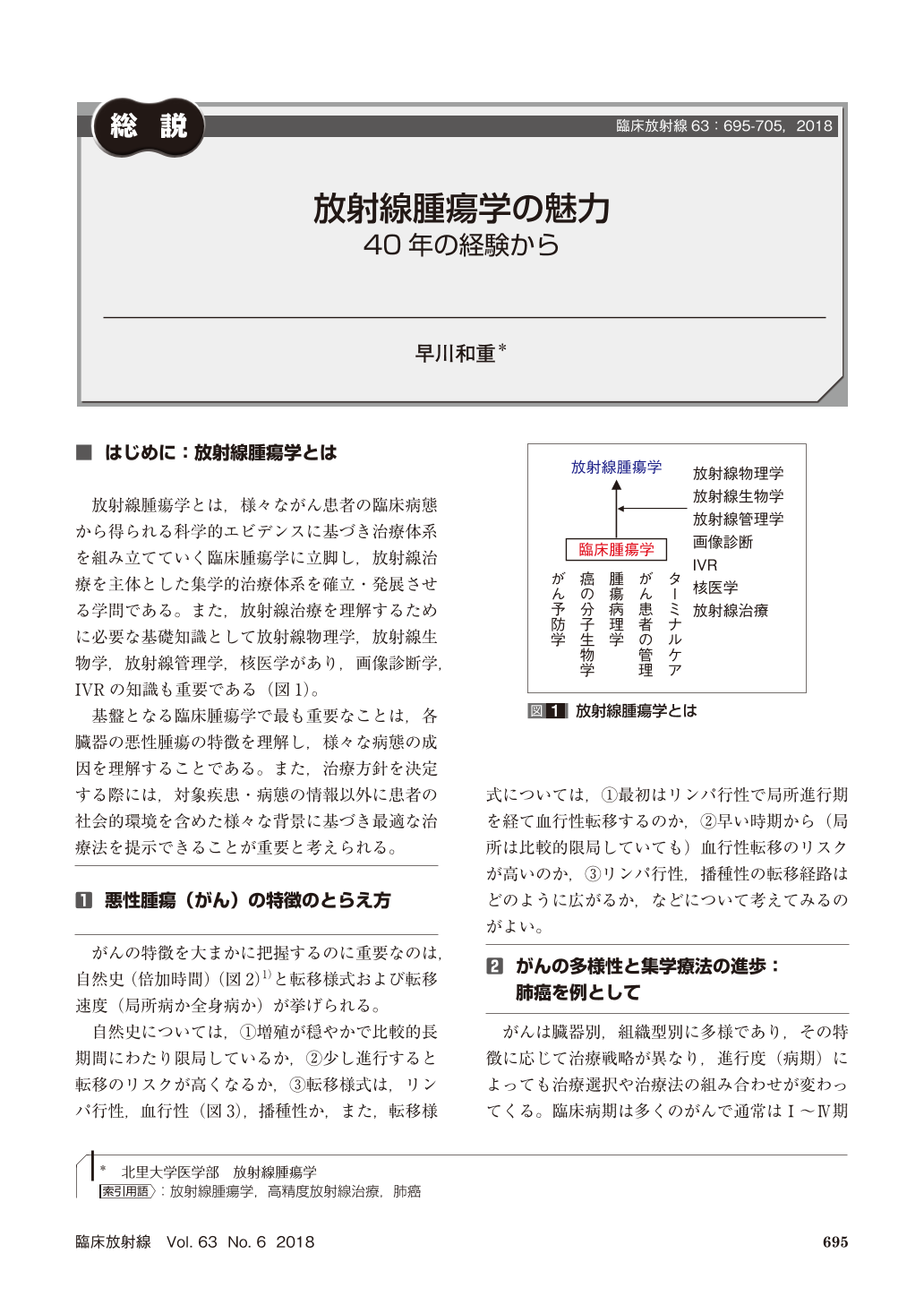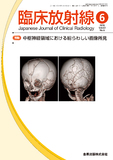Japanese
English
- 有料閲覧
- Abstract 文献概要
- 1ページ目 Look Inside
- 参考文献 Reference
放射線腫瘍学とは,様々ながん患者の臨床病態から得られる科学的エビデンスに基づき治療体系を組み立てていく臨床腫瘍学に立脚し,放射線治療を主体とした集学的治療体系を確立・発展させる学問である。また,放射線治療を理解するために必要な基礎知識として放射線物理学,放射線生物学,放射線管理学,核医学があり,画像診断学,IVRの知識も重要である(図1)。
基盤となる臨床腫瘍学で最も重要なことは,各臓器の悪性腫瘍の特徴を理解し,様々な病態の成因を理解することである。また,治療方針を決定する際には,対象疾患・病態の情報以外に患者の社会的環境を含めた様々な背景に基づき最適な治療法を提示できることが重要と考えられる。
Radiation therapy(RT)is a critical and inseparable component of comprehensive treatment and care for cancer patients. RT has been used not only to cure localized disease but also to palliate symptoms and to control disease, even in incurable cancers. Present day RT can be delivered by image-guided positioning directly to the tumor targets and permits radiologists to use high-precision RT such as stereotactic body RT and intensity-modulated RT. These techniques can be used to control targeted tumors without causing severe damage to the surrounding normal tissues. Recently, in clinical practice guidelines, RT is increasingly recommended for various types of cancers. Furthermore, systemic therapy has been making remarkable advances since the development of molecular targeting agents including immune-checkpoint inhibitors. Now it is not uncommon that patients with advanced metastatic cancer survive considerably longer than was previously possible. Radiation oncology is appealing to help understand the unique characteristics of every cancer originating from various organs and the roles of RT in multidisciplinary treatments for cancer patients.

Copyright © 2018, KANEHARA SHUPPAN Co.LTD. All rights reserved.


